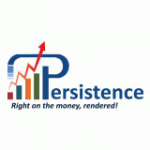Global Hepatitis B Vaccines Market Analysis and Outlook to 2020
November 20, 2014 at 14:03 PM EST

New York, NY -- (SBWIRE) -- 11/20/2014 -- Hepatitis B refers to an infectious disease that is caused by hepatitis B virus. Symptoms of this disease are not visible in initial stages and develop after few weeks only. Hepatitis B virus is transmitted by exposure to infectious blood or body fluids of an infected person. This disease may even occur from the birth. Hepatitis B may be caused by blood transfusions, healthcare setting, sharing razors and dialysis. Hepatitis B vaccine refers to a vaccine that is developed for prevention of hepatitis B virus infection. Hepatitis B vaccine consists of viral envelope proteins and hepatitis B surface antigens (HBsAg). Hepatitis B vaccine is produced by using yeast cells. Medication course for hepatitis B vaccine consists of two or three injections. These injections are given at a time interval of about one month. The first and second doses provide full protection against infection. Final or third injection is given to prolong the effect of hepatitis B vaccine. As a result of this medication, an immune system is developed in the patient’s body which produces an antibody to HBsAg. This antibody is called as anti-HBs. This antibody provides protection against hepatitis B infection. In addition, immune system memory helps to provide resistance against hepatitis B virus. The global market for hepatitis B vaccine is growing at a significant rate due to increasing number of cases with hepatitis B infection. In addition, growing population and growing awareness for improved healthcare facilities is increasing the global market for hepatitis B vaccine. Various types of hepatitis B vaccines are available in the market, such as recombinant DNA vaccines that is produced by insertion of hepatitis B virus.